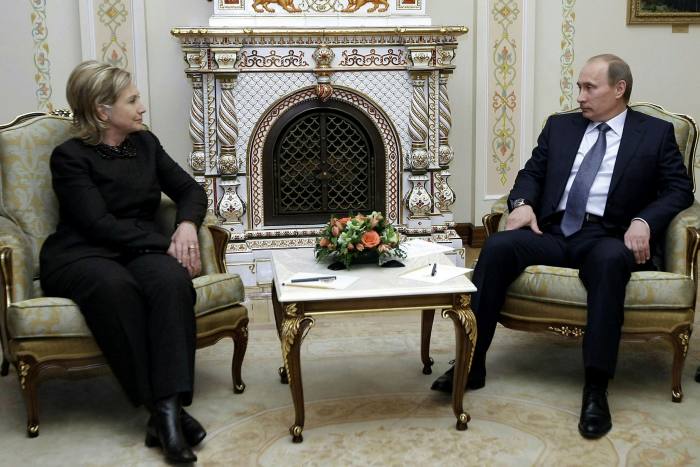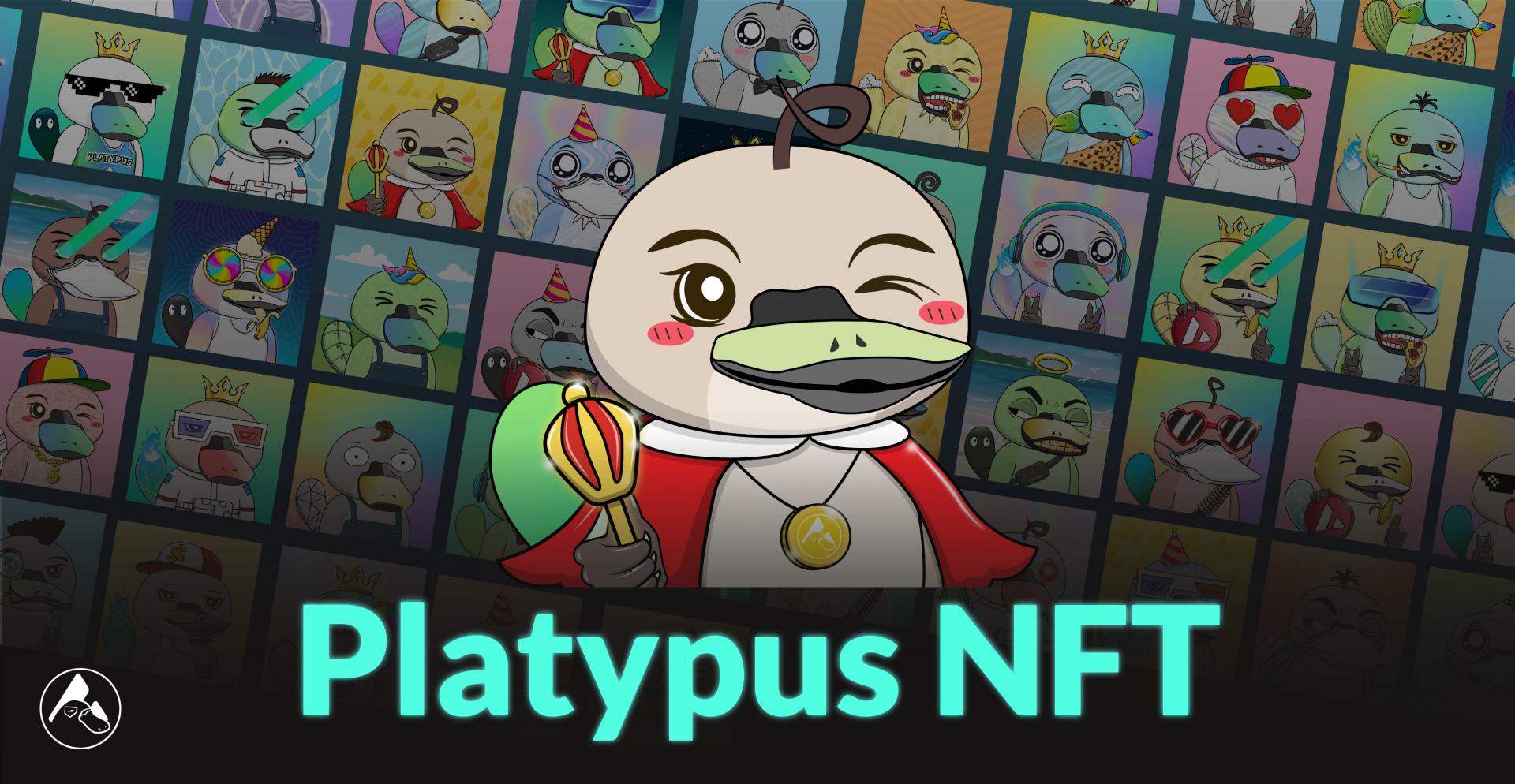Lunching with Hillary Clinton is no routine affair. When I arrive at Washington’s sleek Park Hyatt hotel, the somewhat jittery manager steers me to a discreet side door to await her arrival. After several minutes of awkward small talk, it turns out Clinton already came through the front entrance and has been seated for some minutes. They whisk me past her secret service detail to a semi-enclosed dining area of the Blue Duck Tavern, the hotel’s Michelin-starred, locally sourced restaurant. Clinton is chatting with Nick Merrill, her longtime aide, who stayed on with her after she stepped down as secretary of state in 2013.
Our engagement has taken a while to germinate. Partly this is because Clinton is so often on the road. She has just come back from the UK, where she spoke at the Hay literary festival and met an American who helped to organise the Queen’s jubilee celebrations. “The team were so nervous,” she says. “But it went off without a hitch, right?” This encounter also took some coaxing because Clinton, to put it mildly, does not exactly adore the media. I point out that for all my columns criticising her ill-fated 2016 campaign, I never told her what to wear or when to smile — unsolicited advice in which many male pundits seemed to revel. “That puts you in a small minority,” she says, laughing. It is thus with studied indifference that I describe Clinton as wearing a trademark grey pantsuit and a substantial silver and pearl necklace. She seems to have no trouble smiling.
I consider it my goal to get Clinton to remove the mask she dons for interactions with people like me. Mutual friends say that in private she is funny and can be bitingly sarcastic. American media colleagues have a very different take on a woman with whom they have been feuding for decades.
She has faced a generation of fruitless inquiries, starting with the 1990s probe into the Clintons’ Whitewater real estate investments that culminated in Kenneth Starr’s report on her husband’s sexual indiscretions, then the Benghazi hearings into the killing of a US ambassador and three other Americans under her watch in 2012, and most recently — this very day, in fact — the acquittal of a Clinton campaign legal adviser on the charge that he improperly influenced the FBI to investigate links between Donald Trump’s campaign and the Kremlin. Clinton has described herself as “the most investigated innocent person in America”. She is also a doyenne of practised legalese, which could smother this lunch before it gets going.
A glass of wine would make sense, though. “Oh, I really like wine, but not today,” says Clinton. “But I am a happy observer of other people’s drinking, so you go ahead.” Merrill and I simultaneously agree and each order a glass of Sancerre. Clinton goes for iced tea. She asks the waitress whether the chilled summer green soup is cream-based or puréed. I note that one of her most recent meals was fish and chips at a traditional chippy in England’s Tyneside after she had delivered a lecture nearby. “I have to confess I thought chips were kind of fancy potato chips,” she says. “I thought they were with round cuts of potatoes. You call them chips but they’re fries.” We’re still divided by a common language, I suggest.
This prompts Clinton to talk about her paternal genealogy from the gritty mining towns of north-east England. Her great-grandfather, Jonathan Rodham, was a coal miner recruited to cross the Atlantic with his family in the 1880s. They settled in Scranton, Pennsylvania. He quickly switched to a job at a lace-making factory. Clinton is puzzled why people are so nostalgic about the mining life. “Whether they were from West Virginia or Tyneside, their lives were so grim and disease-prone and unhygienic — but the nostalgia for those days. I don’t know,” she says, trailing off.
Some people blame Clinton’s 2016 loss on her remarks about putting coal mines out of business (Trump promised a mining boom). But identifying one culprit for her 2016 defeat is like Murder on the Orient Express — the dagger is covered with fingerprints. In her memoir of that campaign, What Happened, Clinton takes the primary blame and also points to the FBI’s investigation into her home server emails, her gaffe about half of Trump’s base being “deplorables” and his skill at giving the media a “new rabbit every day [knowing] they’d never catch any of them”.
Having been told it is cream-based, Clinton skips the soup and goes for the jumbo lump crab cake with salad, which I duplicate. I tell Clinton that on learning of her defeat in 2016 my then nine-year-old daughter stopped taking my word as gospel. I had somewhat rashly reassured her that Trump would not win. “It’s really remarkable how often I’m told stories like that and how often I’m reading something like a work of fiction set in modern times and 2016 is a traumatic event — it’s almost eschatological,” Clinton says. “It is a break in history. It’s such a piece of unfinished business.”
With an eye on the likely coming reversal of Roe vs Wade, the 1973 Supreme Court ruling that enshrined women’s right to abortion, I ask Clinton how far such unfinished business is likely to go. “If you go down the rabbit hole of far right intellectuals, you see that birth control, gay marriage — all of it is at risk,” she replies.
What is the Christian right’s endgame, I ask. Presumably they would not be able to create the theological dystopia depicted in Margaret Atwood’s 1985 novel The Handmaid’s Tale? My question triggers a passionate response. Clinton speaks about how some states will make it illegal to abort after rape and incest if Roe vs Wade is overturned. One state — “and this is hard even to speak about”, she says — would require the woman to get the permission of her rapist before aborting. Others plan to criminalise women who have the procedure in states where it is legal.
“The level of insidious rulemaking to further oppress women almost knows no end,” Clinton says. “You look at this and how could you not but think that Margaret Atwood was a prophet? She’s not just a brilliant writer, she was a prophet.” Clinton adds that when she was a senator, she voted against the confirmation of Samuel Alito, one of this court’s most conservative judges. “I found Alito was the kind of young man who when he was at Princeton railed against coeducation, railed against letting women into the eating clubs, and that was all in the background that I read,” she recalls. “He honestly struck me as one of those very self-righteous types seeking to remake society.”
Blue Duck Tavern
Park Hyatt Washington
1201 24th St NW, Washington DC 20037
Jumbo lump crab cake x 3 $132
Still water $9
Sparkling water $9
Apple pie à la mode $31
Espresso x 2 $14
Glass of Sancerre x 2 $40
Black iced tea x 2 $14
Total inc tax and service $338.90
Clinton asks for extra salad with her crab cakes and more iced tea. “You guys should have more wine,” she says, which we both reluctantly decline. I ask whether things would have turned out differently had Clinton, not Trump, won in 2016. Her answer makes it clear she thinks the January 6 2021 storming of Capitol Hill to stop Joe Biden’s certification would simply have happened four years earlier. “Literally within hours of the polls closing in 2016, we had so much evidence pouring in about voters being turned away in Milwaukee and not being able to vote in Detroit,” she replies.
“These states were run by Republicans so there was no way to find out the truth about any of them. I also believe in peaceful succession and transition and all of that.” At that point she says she was unaware of Cambridge Analytica and the role of social-media algorithms — “all of the stuff that was convincing people that I was a murderer or a child trafficker”. She reminds me that she won the popular vote by nearly 3mn but lost the electoral college by 78,000 votes. Biden won the popular vote by more than 7mn but barely scraped the electoral college by 43,000 votes. “That tells you everything you need to know about Republican strategy for 2024. Even in his reptilian brain, Trump has to know that he lost this time. He refuses to accept it because it wasn’t supposed to happen.”
Does she think Trump will run in 2024? “I think if he can he’s going to run again,” Clinton replies. “Follow the money with Trump — he’s raised about $130mn sitting in his bank account that he used to travel around, to fund organising against elections . . . I don’t know who will challenge him in the Republican primary.” Could you imagine running again, I ask. “No, out of the question,” Clinton replies. “First of all, I expect Biden to run. He certainly intends to run. It would be very disruptive to challenge that.” The fact that Biden will be 81 at the next election is nevertheless a source of rising angst among some Democrats — and speculation about whether he might step down. Clinton does not get around to her second point about why she will not seek high office again. The first seems final enough.
We had agreed to share the restaurant’s signature apple pie but it is so gigantic that Clinton balks at the sight. “Oh wow. I’m done. Serve him and then yourself,” Clinton suggests to Merrill. Clinton’s bowl of berries never arrives.
She knows these lunches are meant to be conversational and fires off several questions. The most relevant of these is how I would compare Henry Kissinger, who recently turned 99, with the late Zbigniew Brzezinski, Kissinger’s life-long rival and friend, whose biography I am researching. I discern a subtext to her question. Kissinger recently said that Ukraine might have to concede territory to Putin to bring the war to an end. I say that on balance Brzezinski had a keener grasp of the Soviet Union’s weaknesses. “I fully agree,” says Clinton. “You’ve got to give Kissinger credit for longevity if nothing else. He just keeps going. I never thought Brzezinski had a romantic view of the Russians the way Kissinger did. He values his relationship with Putin so much.”
It seems like a good moment to ask Clinton about Russia’s leader, whom she once quipped had “no soul”. Though Clinton talks about today’s situation in Ukraine, she keeps referring back to Putin’s role in America’s 2016 election, which she believes was in revenge for an “anodyne” statement she had made as secretary of state in 2012 in support of the pro-democracy protests against his return to Russia’s presidency.
She relates an anecdote about a restaurant dinner in London several years ago, where the guests debated the wisdom of Nato’s post-cold war expansion. After a while, the waiter interrupted: “‘Before I take your order, I am from Poland and I have one thing to say: never trust the Russians,’” Clinton recalls approvingly. She adds: “I always believed in expanding Nato and I find the arguments against that to be naive at best, because what we have seen is proof positive of why it was necessary.”
Putin once said of Clinton: “It’s better not to argue with women.” Was Putin as scathing towards Clinton in private as he was in public, I ask. Clinton draws a breath. “Yes, he was very sexist towards me. We had some interesting, even helpful, interactions in private and then the press would be invited in and he would say something insulting about America. He would then manspread for effect.” In her view, Putin’s only realistic path to victory in Ukraine would be Trump’s re-election in 2024. “If Trump had won in 2020 he would have pulled out of Nato — I have no doubt about that,” she says.
My espresso has arrived. Clinton asks for more iced tea. I cannot allow the lunch to end without questioning the direction of her party. I say that Democrats seem to be going out of their way to lose elections by elevating activist causes, notably the transgender debate, which are relevant only to a small minority. What sense does it make to depict JK Rowling as a fascist? To my surprise, Clinton shares the premise of my question.
“We are standing on the precipice of losing our democracy, and everything that everybody else cares about then goes out the window,” she says. “Look, the most important thing is to win the next election. The alternative is so frightening that whatever does not help you win should not be a priority.”
Another instance is the “defund the police” campaign, she adds. “You need accountable measures. But you also need policing. It doesn’t even pass the common-sense politics test not to believe that. Some positions are so extreme on both the right and the left that they retreat to their corners . . . Politics should be the art of addition not subtraction.”
It has been an intensive 100 minutes but I am not sure I have persuaded Clinton to take off her proverbial mask. As we stride across the busy restaurant floor — Clinton waves gamely and returns a barrage of shouted greetings — I notice that she did not bring an actual one, an omission still viewed askance in some circles. You should take that glass of wine next time, I suggest as we walk to her mini-motorcade. “I can happily agree to that,” she says. Then she vanishes behind tinted glass.
Edward Luce is the FT’s US national editor
Find out about our latest stories first — follow @ftweekend on Twitter
Credit: Source link














